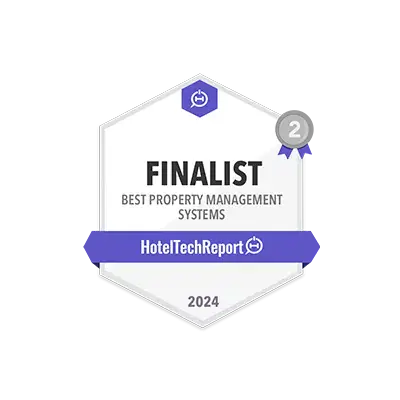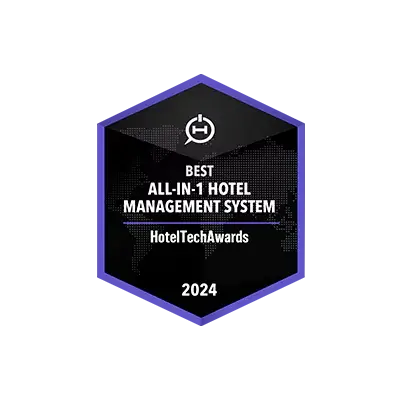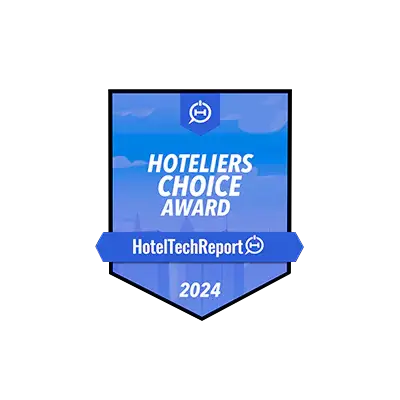What are online travel agencies?
The ultimate guide to OTAs
Love them or not, online travel agencies (OTAs) play a critical role in every property’s distribution strategy. According to Expedia Group’s 2023 Path to Purchase report, OTAs captured 51% of online hotel & lodging bookings and possess the visibility and marketing power that most individual properties cannot achieve on their own.
Working with OTAs isn’t just a matter of signing up and hoping for the best. To take advantage of the opportunities and avoid the pitfalls, you need to actively manage your listings, pricing, and inventory and take a strategic approach to online distribution.
If done correctly, adopting the right OTAs as part of your distribution strategy can actually help drive direct bookings through the “billboard effect.” Building a comprehensive channel mix incorporating different types of OTAs will ensure you reach your target audience and secure a steady stream of reservations.
See the best online travel agencies globally, regionally, and across property types based on Cloudbeds customer data and how properties like yours use OTAs as part of their distribution strategy.
At Cloudbeds, we know the world of OTAs and distribution channels can be complex. We’ve created the Big Book of OTAs to help demystify this process and explain how to create a recipe for success when working with third-party distribution channels.
What is an online travel agency (OTA)?
An online travel agency (OTA) is a website that acts as a search engine to book travel. They connect providers across the travel industry to help travelers easily plan their trips. On OTA sites, travelers can often access package deals with accommodations, airfare, cruises, rental cars, and more, leveraging last-minute deals and perks.
Over the years, online travel agencies (OTAs) have evolved into sophisticated marketing channels for properties of all sizes and types. Never before have consumers been able to so easily compare different travel options side-by-side in terms of price, travel dates, and location.
On average, travelers view 141 pages of travel content in the 45 days before booking a trip, with travel websites making up 67 of those pages. Therefore, properties must be active on as many channels as possible to increase brand awareness and drive bookings — both OTA bookings and direct bookings (more on this later). With the increased popularity of OTAs around the world, hoteliers now have access to markets once unattainable.
How do OTAs work?
Booking platforms emerged in the 1990s, using the internet’s extensive reach to aggregate global travel supply into a single place so consumers could make travel plans and book hotels online. These self-service tools reshaped the hotel industry and travel experience with functionality like mobile apps that allowed the general public to easily plan their trips and reserve their airfare, accommodations, vacation packages, car rentals, and tours on their own rather than rely on a physical travel agent.
Booking sites such as Expedia, Booking.com, Airbnb, Orbitz, Hotels.com, VRBO, Ctrip, Hotwire, and TripAdvisor are often consumers’ first stop when researching and booking their next trip. These apps offer a seamless user experience at all stages of the booking process: problem/need recognition, information search, evaluation of alternatives, purchase decision, and post-purchase behavior.
Properties of all types and sizes can connect to multiple OTAs through an integrated channel manager. A distribution system, like a channel manager, shares room inventory and rates from your property management system (PMS) to your booking engine and OTAs. Properties that use a channel manager can streamline hotel operations, increase hotel revenue via revenue management best practices, and increase occupancy across channels (all without the fear of overbookings).
OTA business models
Hotels form partnerships with OTAs by basically outsourcing marketing to OTAs, who then make money through two business models: the merchant model (guest pays the OTA in advance) and the commission model (guest pays the hotel at check-in or check-out). Most OTAs offer a blended model so that hotels can let guests choose which option they’d prefer.
The merchant model
In this model, the online travel agency acts as the merchant of record and collects payments from guests at the time of booking. Once the guest has checked out, the OTA pays the hotel. Contracts exist between hotels and OTAs to provide a set number of rooms to the OTA at a favorable rate. The OTA then makes a profit off each room sold but must meet its contractual thresholds.
The agency (commission) model
In this model, the consumer books via the OTA but pays the hotel directly at the time of checkout. The hotel then pays the OTA a commission on the total value of the booking after checkout. There are no contracts, and rates are set by hotel management.
The advertising model
This model has increased in popularity and exists on metasearch sites such as Google Hotel Ads, Tripadvisor, Trivago, and KAYAK. Metasearch engines work primarily on a cost-per-click basis where hotels can promote their rooms with links to their direct booking engine, and pay a fee based on the number of clicks they receive.
For hotels, it can be frustrating to watch distribution costs rise without getting more in return, but there are costs associated with direct bookings too. Demand doesn’t appear without at least some sort of distribution or marketing strategy in place, and those marketing campaigns, loyalty offers, special deals, and direct booking tools have a cost to the hotel. That’s why it’s important to use OTAs wisely and in conjunction with your own direct marketing strategy.
Online travel agencies vs. online travel agents
Before the rise of OTAs, it was the role of a travel agent to book leisure and business travel. This is because travelers back then did not have access to hotel availability and rates the way we do today. While the internet has made it easier for travelers to book flights and hotels online, some segments, like luxury, corporate, and group travelers, still prefer to utilize a travel company or online travel agent to help plan and book a trip.
Travel agents are beneficial when planning complex trips such as a destination wedding, honeymoon, or corporate trip. They have the expertise and connections to find unique accommodations at better rates than most people can find themselves.
Travel agents such as Kuoni have a team of destination experts who work behind the scenes to curate tailor-made travel services, accommodations, experiences, and itineraries. Their in-person stores allow travelers to enjoy a glass of champagne while meeting with a travel expert to plan their dream vacation.
Travel agents usually have a portfolio of properties they recommend to travelers and take a commission fee, similar to OTAs. Strong relationships with travel agents can help properties drive more bookings in alternative segments than the OTA market.
Difference between OTAs and metasearch
With so many online booking channels available today, it can be challenging to understand the difference between certain channels.
Metasearch websites like Skyscanner act as aggregators and display hotel information and room rates from a variety of online channels, including OTAs like Agoda, Trip.com, Travelocity, or Priceline.com and a hotel’s website. It enables travelers to compare all of their hotel booking options in real time across the web so that they can book the best deal for their travel needs.
OTAs provide room rates and booking capabilities for only one channel — their own. Meanwhile, metasearch sites can display up to twenty or more results.
Properties can invest in hotel marketing efforts through metasearch engines. Metasearch sites rank listings and it pays off to be near the top. Paying to have your listing higher in the ranks to drive more direct bookings can drive serious results.
Is Google an OTA?
Google is often a traveler’s first stop when looking for a hotel room. In recent years, Google has changed the hospitality industry with its products. Google offers Google Hotel Search, which acts as a hotel metasearch platform. When a traveler enters a property’s name into Google, it will show all of the rates and listing information from across the web.
Google also has free booking links, a game-changer for independent hotels as they can list their direct rates and links to their own website within the Google Hotel Search box. This option encourages potential guests to book direct.

















